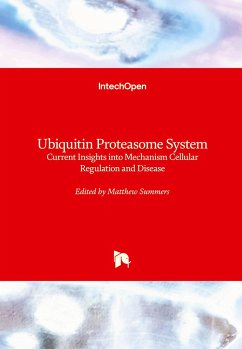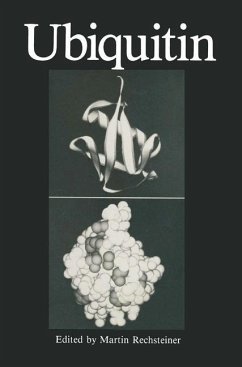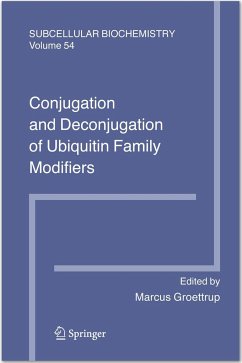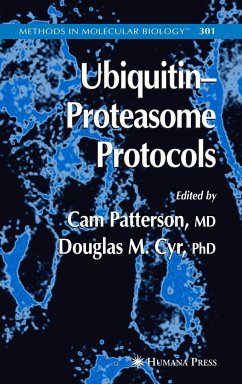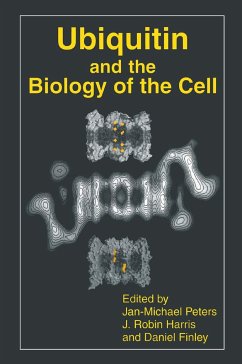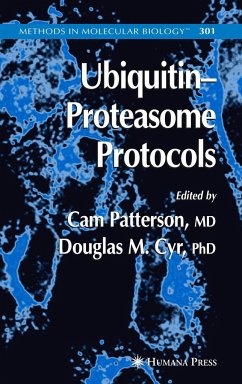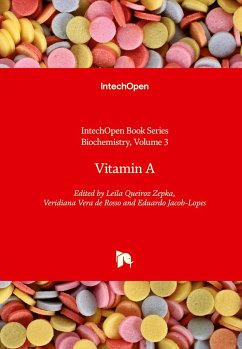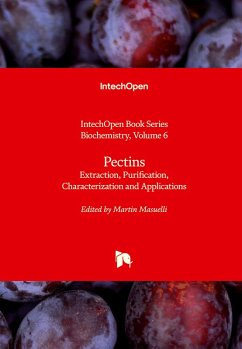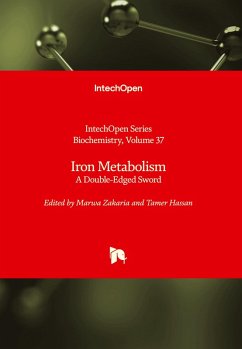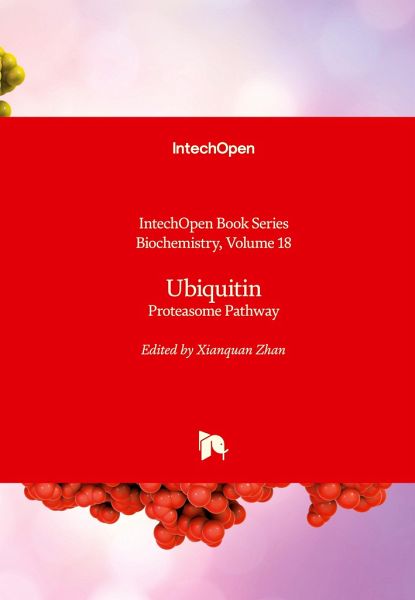
Ubiquitin
Proteasome Pathway
Herausgeber: Zhan, Xianquan; Blumenberg, Miroslav
Versandkostenfrei!
Versandfertig in 1-2 Wochen
129,00 €
inkl. MwSt.

PAYBACK Punkte
0 °P sammeln!
The ubiquitin-proteasome pathway consists of ubiquitin, substrate proteins, E1 enzymes, E2 enzymes, E3 enzymes, and proteasome, which acts in a series of enzymatic reaction chains to ubiquitinate substrate proteins such as surplus and misfolded proteins for degradation by the proteasome to maintain the balance between protein synthesis and degradation in a cell and tissue. Moreover, deubiquitinating enzymes can remove the attached ubiquitin chain, which results in a reverse ubiquitination-deubiquitination process involved in multiple biological processes in a cell and tissue. The changes of co...
The ubiquitin-proteasome pathway consists of ubiquitin, substrate proteins, E1 enzymes, E2 enzymes, E3 enzymes, and proteasome, which acts in a series of enzymatic reaction chains to ubiquitinate substrate proteins such as surplus and misfolded proteins for degradation by the proteasome to maintain the balance between protein synthesis and degradation in a cell and tissue. Moreover, deubiquitinating enzymes can remove the attached ubiquitin chain, which results in a reverse ubiquitination-deubiquitination process involved in multiple biological processes in a cell and tissue. The changes of components in the ubiquitin-proteasome pathway are associated with multiple pathophysiological processes, such as cancers and neurodegenerative diseases. This book presents the new advances in concepts, analytical methodology, and application of ubiquitin-proteasome pathway for clarification of molecular mechanisms and discovery of new therapeutic targets and drugs in different diseases.



